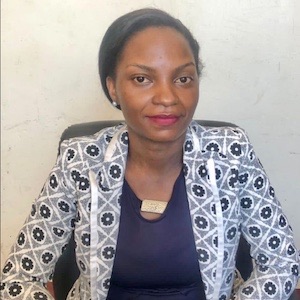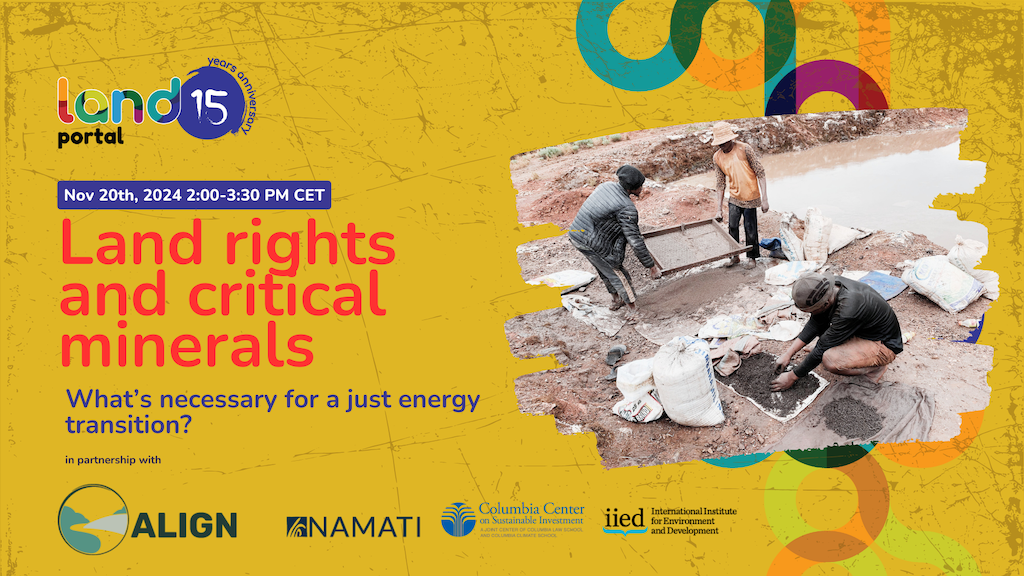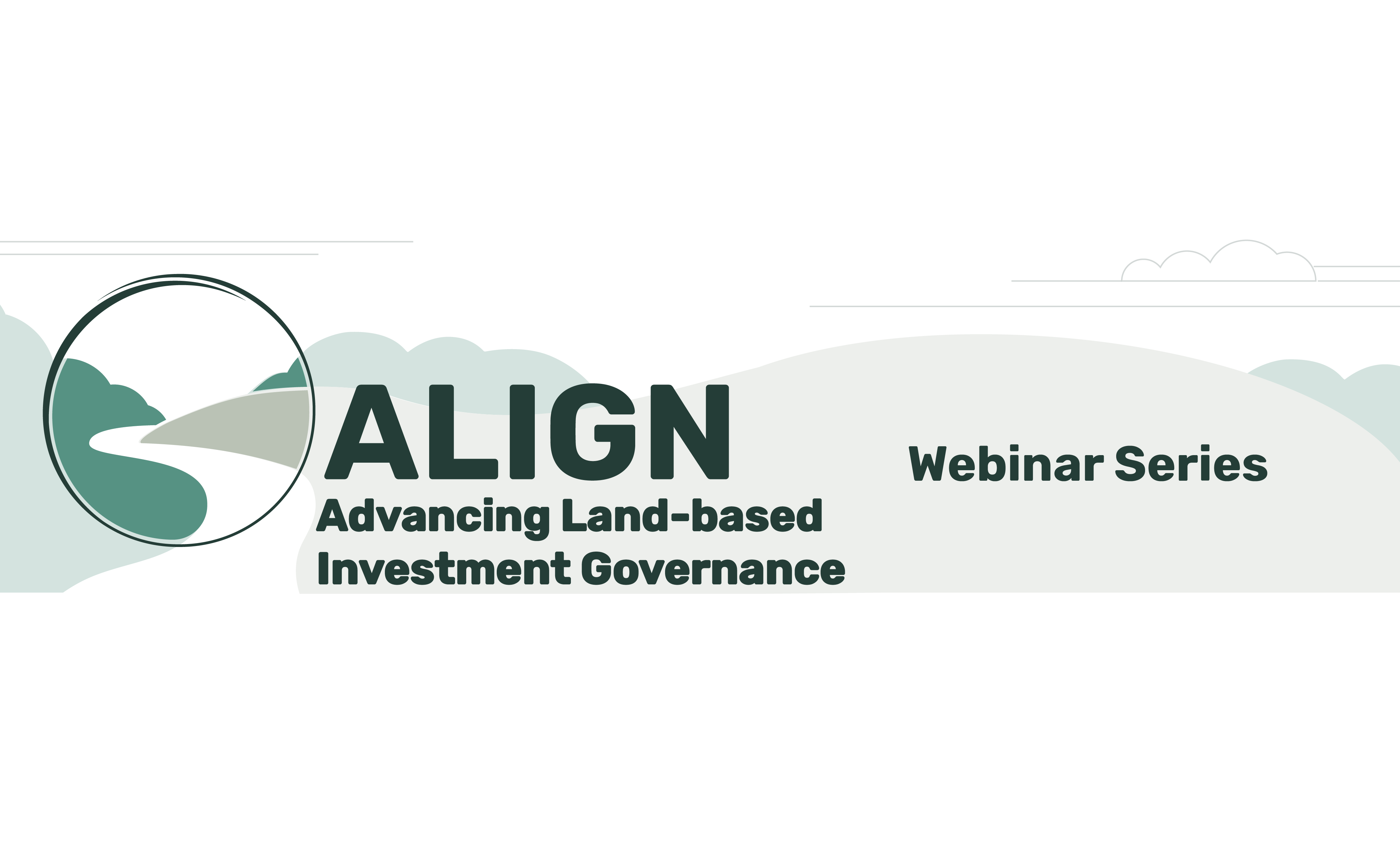“Human Rights must be at the core of all mineral value chains” is the first principle in the Report of the UN Secretary General’s Panel on Critical Energy Transition Minerals – released in September 2024. According to the report, these chains must also be “underpinned by justice and equity” (Principle 3). But what it might mean to take fast action to ensure adherence to these principles?
This webinar delved into the land governance dimensions of mining minerals that are critical to a green future, sharing insights from diverse practical approaches across diverse geographies to address complex challenges on the ground to secure the rights of indigenous peoples and local communities, whilst asking big picture questions on the role of land data, the land footprint and spatial justice dimensions of the energy transition.
This event drew from work under the Advancing Land Based Investment Governance Initiative (ALIGN) coupled with insights from the global policy process to advance mining governance and secure justice and equity in the transition.
The webinar took place in English with simultaneous interpretation in Bahasa Indonesia, French, Portuguese, and Spanish.
Speakers

Emily Polack, Senior researcher, law, economies and justice programme, Natural Resources research group, International Institute for Environment and Development (IIED) (Moderator)

Mark Robinson, Executive Director, Extractive Industries Transparency Initiative (EITI)

Naomi Nangoku, Senior Mineral Dresser, Ministry of Energy and Mineral Development, Uganda

Freeman Mubanga, Head of Research and Studies, Centre for Environment Justice (CEJ), Zambia

Andi Rahman, Chairman, Walhi Southeast Sulawesi
This is the fifth webinar in the Advancing Land-based Investment Governance (ALIGN) series, which focuses on the governance of land-based investments in the Global South. The series explores practical strategies and approaches adopted by rights defenders and practitioners to address common challenges surrounding these investments. The series also connects the thematic elements and openings within these strategies for enhanced RLBI governance to the Responsible Land-Based Investment Navigator, a knowledge hub bringing together a wide range of curated tools and guides on topics related to the governance of land-based investments.
Linked to this, and underpinning many of the strategies deployed, is the importance of reliable and readily available information. Such information improves transparency and accountability and facilitates more responsible land investments. The series will therefore also explore how open data can assist in protecting the rights of individuals and communities and enhance opportunities for equitable and responsible land investments.
This webinar series is a partnership of the Columbia Center on Sustainable Investment (CCSI), International Institute for Environment and Development (IIED), Land Portal Foundation, and Namati.




